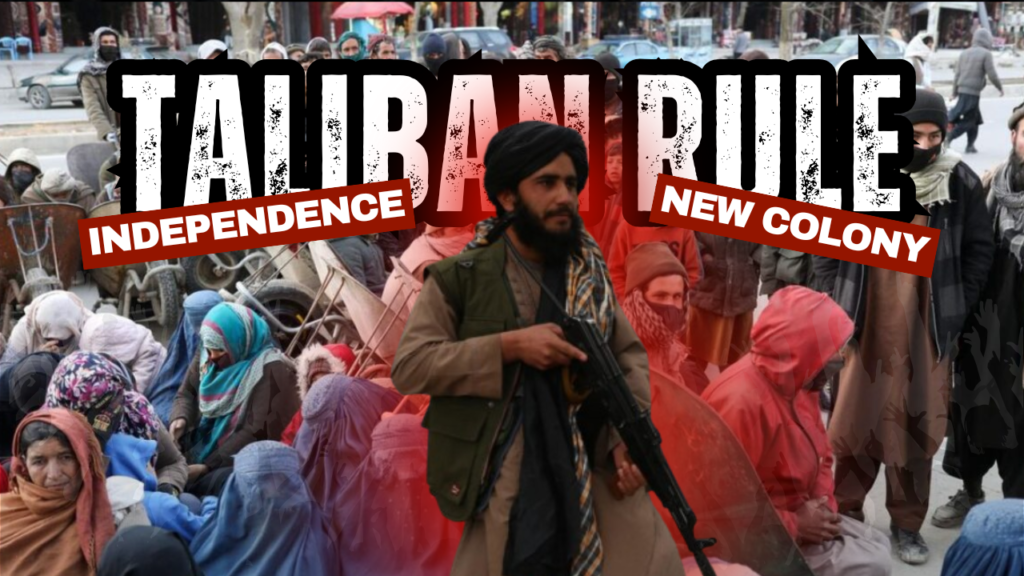
As the Taliban government mark their fourth year in governance, Afghanistan remains trapped between the promise of sovereignty and the reality of isolation, poverty, and repression. Once labeled as a return of Afghan rule after two decades of western occupation, Taliban rule has instead left world and its own people too questioning whether Afghanistan has become an colony under its own rulers.
An Economy in Freefall
Four years into Taliban rule, Afghanistan’s economy shows no signs of recovery. The latest report published by united nations warns that poverty and hunger have reached unmatched levels, with more than half of the population reliant on humanitarian aid. The Global Hunger Index ranks Afghanistan 116th out of 127 countries, with nearly a thirty percent of Afghans are suffering from malnutrition.
GDP figures highlight the collapse: from nearly $20 billion in 2020 to just $14.2 billion after the Taliban takeover in 2021. By 2024, the economy had only slightly recovered to $17.7 billion, but per capita income fell sharply from $500 to $360.
Mariam, a 28-year-old widow and former health worker, embodies this crisis. She once earned 20,000 afghanis a month but lost her job when the Taliban banned women from many workplaces. “Before the Taliban came, I could send my children to school. Now I have no job, no income… This hard life has turned our world into hell,” she says.
At the same time, Taliban government boast of signing $7.5 billion worth of mining contracts with private companies in which majority of companies are Chinese. This step is taken by government to boost the economy of state but locals accuse the regime of looting resources, as protests in Takhar province over a gold mine deal demonstrated.
Four Years of Restrictions
Alongside economic decline came sweeping social controls. Since forming government on August 15, 2021, the Taliban have steadily squeezed freedom and fundamental rights . Girls were banned from high school in March 2022, followed by restrictions on universities, gyms, parks, and workplaces. Women are now required to cover their faces in public, banned from most employment, and silenced from public life and their voices are also banned from media broadcasts in some provinces.
Floggings, executions, and strict dress codes were all reinstated as public penalties. Owners of beauty salons and other entrepreneurs lost their means of subsistence. By 2023, morality regulations had forced the closure of even ostensibly apolitical venues, such as salons and cultural events.
Diplomacy and Global realtions
In past four years the Taliban government has tried to established diplomatic relations with other countries by welcoming China’s ambassador, sending envoys to the UAE, and eventually winning recognition from Russia in 2025. But internationally, they remain sanctioned, isolated, and under investigation. The International Criminal Court recently requested arrest warrants for senior Taliban leaders over repression of women.
At a Crossroads
Today, Afghanistan’s reality is a paradox. The Taliban claim independence from foreign control but looks like a radical ideological colony, yet economic lifelines increasingly depend on external deals and humanitarian aid. While they celebrate sovereignty on former US bases, millions of Afghans struggle with hunger, joblessness, and shrinking freedoms.
Four years on, the central question remains: Has Taliban rule restored Afghanistan’s independence, or has it turned the country into an ideological colony under its own rulers?
for more updates follow ANN MEDIA on facebook , X , Instagram and Linkedin







